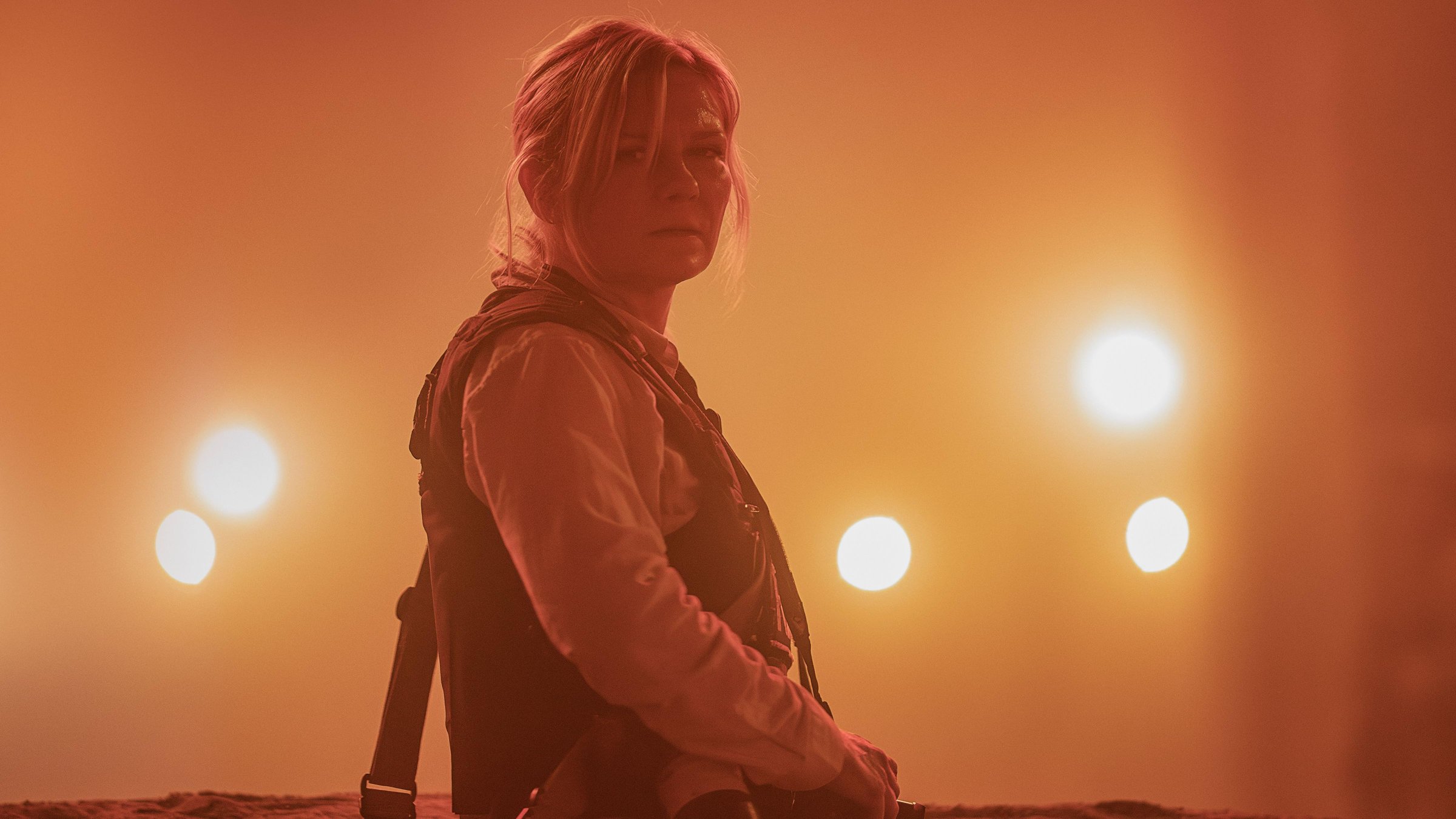
Civil War (2024) — Movie Review
- May 3, 2024
Alex Garland’s “Civil War” throws audiences into a dystopian vision of America's near-future disunification. The film is intended as a wake-up call, starting out slow and gradually leading viewers into a breath-taking raid in Washington D.C. The story is made engaging by the team of journalists whose journey to the Capitol is captured amidst the adversity that surrounds them.
The team is led by a seasoned war photographer, Lee Smith (played by Kirsten Dunst). Her detachment from the alarming scenes around her is both a vital requirement for her job and an eerie reality that haunts them all. Amid conditional patriotism and political power-games, in which both Texas and California have seceded to pool resources against a power-hungry president, the film avoids the 'why' and focuses on the 'what is happening'.
The horror of civil unrest and societal collapse is replays in visceral detail. Familiar domestic scenes are subverted into ghastly war zones highlighting the fragility of peace and unity. Garland once again drives home the disquieting consequences of internal rifts.
Lee who has seen more atrocities and horrors than the average person, has grown cold and detached, focusing solely on getting the shot. Kirsten Dunst delivers a compelling portrayal of a journalist whose relentless pursuit of reportage has siphoned life out of her.

The film, substantially set in broad daylight, eschews the grunge and grotesquerie of other war-related movies. It appears as a mirror to modern America with frequent blurring of lines between rebels and patriots. The latter part of the movie takes a horrifying turn bearing resemblances to Stephen King's uncanny narratives than conventional war tales.
The final stretch of the movie portrays a chilling siege on the White House that leaves viewers in shock and suspense. Lee's human reaction towards the undermining of democracy underscores her character's transformation from a passive observer to an active participant.
"Civil War" pushes boundaries in its depiction of societal collapse, leaving no room for complacency among viewers. By focusing on divisive narratives and the futility of such divisions, Garland's unpredictable narrative triggers a deeper contemplation about the existing societal dynamics and provokes us to question - Can we all get along?







